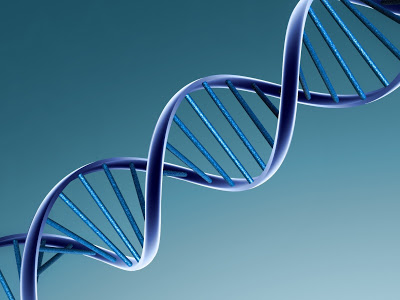Scientists Discover Method to Store Data on DNA
Get Tom's Hardware's best news and in-depth reviews, straight to your inbox.
You are now subscribed
Your newsletter sign-up was successful
Scientists have developed a method to store data on DNA and expects it to become an adequate alternative to hard discs within a decade.
Researches from the European Bioinformatics Institute (EBI) have successfully created a way to store data in DNA-centric strands. MP3s, PDFs, text files and photos can now be stored in the form DNA and doesn't require any power. They believe the data stored should last for tens of thousands of years.
"We already know that DNA is a robust way to store information because we can extract it from wooly mammoth bones, which date back tens of thousands of years, and make sense of it," said Nick Goldman of EMBL-EBI. "It's also incredibly small, dense and does not need any power for storage, so shipping and keeping it is easy."
At the storage density achieved, a single gram of DNA is able to hold 2.2 million gigabits of information, which is around 468,000 DVDs. The researchers also added an error correction scheme, as well as encoding the information a number of times in order to ensure that data is read back with 100% accuracy.
The technology is currently unable to launch as combining DNA from encoded information is a considerably intensive and expensive operation. That said, the researchers estimate that the price will decrease enough to become palpable in the coming years.
Contact Us for News Tips, Corrections and Feedback
Get Tom's Hardware's best news and in-depth reviews, straight to your inbox.

Zak Islam is a freelance writer focusing on security, networking, and general computing. His work also appears at Digital Trends and Tom's Guide.
-
merikafyeah If it's even close to 250K for a workable implementation, I'm sure companies like Google will snatch it up like hotcakes. God knows what someone could do with virtually unlimited and extremely resilient data storage that requires almost no energy to maintain.Reply -
h22chen I wonder if they do that to humans, would we have Gouald abilities? That our future generation (children) would also have the data that we possess.Reply -
basketcase87 h22chenI wonder if they do that to humans, would we have Gouald abilities? That our future generation (children) would also have the data that we possess.There's nothing to be done to humans. They're using DNA in a tube to encode digital data. The DNA wouldn't be useful in living cells; it only has meaning when it's sequenced and interpreted by a computer.Reply -
457undead They state it hold gigabits not gigabytes? Isn't gigabits used in bandwidth? Please correct me if I'm wrong.Reply -
basketcase87 457undeadThey state it hold gigabits not gigabytes? Isn't gigabits used in bandwidth? Please correct me if I'm wrong.The gigabit is also a measurement of storage (10^9 bits). I don't know for sure why they used the gigabit rather than byte but I would guess it's because the bit is more directly related to the calculation they did for how much DNA needed than the byte (since they're encoding bits in the DNA, not bytes).Reply -
CrrWllr It will be amazing to have a pen drive of this stuff, that's like 8 grams.Reply
700TB x 8 = 5600TB!!
